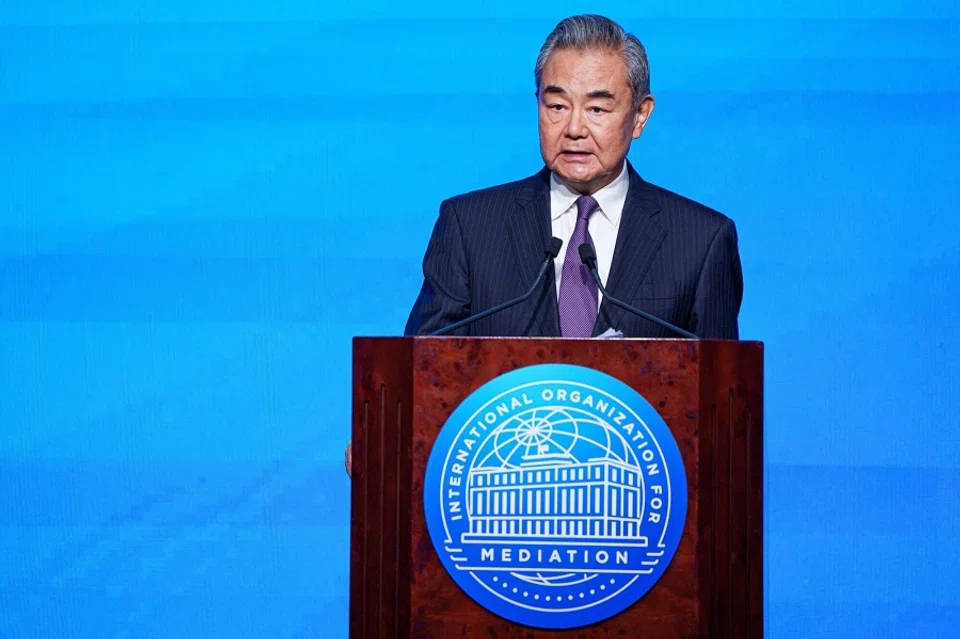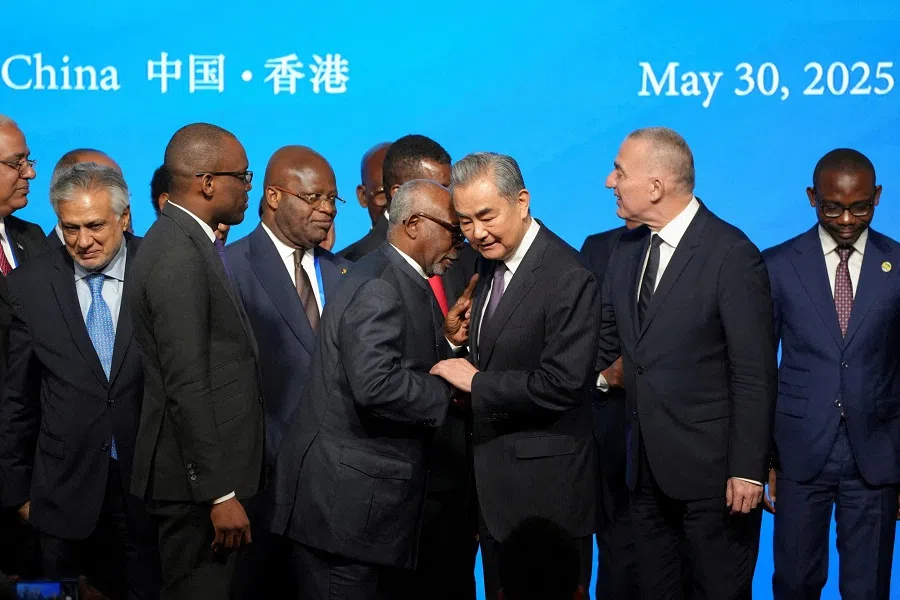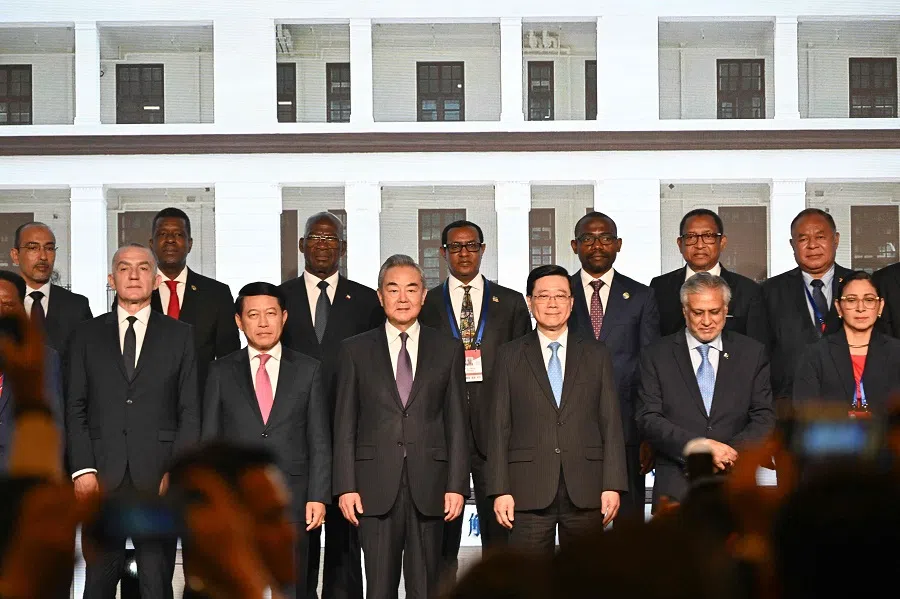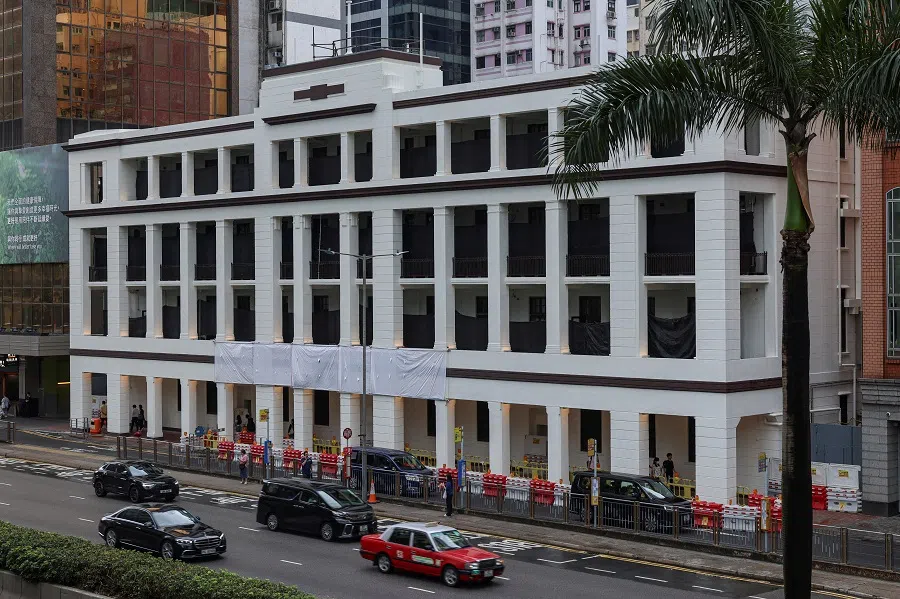IOMed: Another China-led global organisation?
China and a group of like-minded countries signed the Convention on the Establishment of the International Organization for Mediation (IOMed) in Hong Kong recently, signalling China’s growing diplomatic efforts. But the devil is in the details, says academic Ghulam Ali.

On 30 May 2025, China, along with 33 like-minded countries, including Indonesia, Pakistan, Laos, Cambodia, Serbia, Algeria, Cuba, Zimbabwe, Nicaragua, Belarus, Papua New Guinea and Venezuela signed a convention to establish the International Organization for Mediation (IOMed), with its headquarters in Hong Kong.
According to the Chinese foreign ministry, 400 delegates from 85 countries from Asia, Africa, Latin America and Europe, and around 20 international organisations, including the UN, attended the ceremony. Speaking at the occasion, Chinese Foreign Minister Wang Yi stated that the establishment of IOMed was an “innovative step in international rule of law” with “great significance in the history of international relations”.
Although Article 33 of the UN Charter lists mediation as one of the peaceful means of dispute settlement, ironically, no legal organisation focused on mediation existed for international dispute resolution. China gained credit for establishing the world’s first intergovernmental legal organisation dedicated exclusively to resolving international disputes through mediation.
Beijing set the example of a constructive rather than a decisive mediator by refraining from direct intervention.
Origins of the IOMed
The origins of IOMed can be traced back to a dispute among Ethiopia, Egypt and Sudan that erupted over the Grand Ethiopian Renaissance Dam in 2020. As one of the financiers of the dam, China encouraged contending parties to resolve the issue through peaceful means and supported the African Union-led dispute settlement process. Beijing set the example of a constructive rather than a decisive mediator by refraining from direct intervention.

At the same time, China was testing its mediatory diplomacy in other regions. During its tenure as the rotating chair of the UN Security Council in 2021, China advocated for a ceasefire in the Israel-Palestine conflict, the two-state solution and urged dialogue as a means of resolution. China also mediated between Pakistan and Afghanistan, as well as among different factions of Palestinian groups.
The mediation that drew global attention to China was its quiet diplomacy in restoring diplomatic ties between arch rivals Saudi Arabia and Iran in March 2023. Overall, these experiences motivated China to establish a formal mediation body. In October 2022, China signed a joint statement with several other countries to initiate preparatory work for establishing IOMed.
China claimed it always opposed the zero-sum mentality of “you lose, I win”. Instead, it sought to find a solution acceptable to both parties.
Key objectives and mechanisms
IOMed is the first-ever, China-led, treaty-based international body devoted exclusively to settle disputes through mediation. Presently, it focuses on the peaceful settlement of three types of disputes: “state-to-state”, “between states and foreign investors”, and “commercial matters between and among parties”.
IOMed is designed to operate on principles such as ”respect for state sovereignty”, equality, impartiality, non-interference in internal affairs, the rule of law and efficacy. It aims to provide flexible, cost-effective, efficient and confidential mediation services, complementing existing international dispute resolution mechanisms while addressing the underrepresentation of developing countries in global governance.

Bringing cases before the IOMed would be voluntary, requiring the consent of both parties involved. Its decision would be non-binding, relying on mutual agreement and the willingness of the disputants. China claimed it always opposed the zero-sum mentality of “you lose, I win”. Instead, it sought to find a solution acceptable to both parties.
From an organisational perspective, IOMed consists of a governing council, a secretariat and panels of mediators. The governing council, comprising one representative from each contracting state, serves as the primary decision-making body, setting policies, adopting rules and appointing leadership. Member countries would send panels of expert mediators for various types of disputes. The secretariat is expected to be fully operational by late 2025.
... the IOMed is another China-led international institution aimed at addressing a crucial gap in the international dispute settlement mechanism. It can potentially provide an alternative to Western-dominated institutions.
How does IOMed differ from other dispute settlement bodies?
Several international dispute settlement bodies already exist. Major ones include the International Court of Justice, the Permanent Court of Arbitration, the WTO Dispute Settlement Body, the International Centre for Settlement of Investment Disputes, the International Chamber of Commerce International Court of Arbitration, and the United Nations Commission on International Trade Law. These mechanisms mainly focus on litigation and arbitration.

In litigation, disputes are brought before international courts or tribunals such as the ICJ. This process involves formal proceedings with binding decisions. Arbitration is a private and often confidential process where parties select arbitrators and procedures, resulting in binding outcomes as well. Both methods are formal, influenced by Western legal traditions, and typically entail considerable financial and procedural costs.
China claims that IOMed would be different. It would be affordable and accessible, particularly for developing countries; proceedings would be confidential, joining would be voluntary and decisions would be non-binding. It would ensure mutual respect, win-win solutions and flexibility.
Impartiality is another concern. Just as the US exerted influence over the institutions it built, China might do the same.
China expands its global leadership role, but there are challenges
Following the establishment of groupings like the SCO, BRICS and Asian Infrastructure Investment Bank, the IOMed is another China-led international institution aimed at addressing a crucial gap in the international dispute settlement mechanism. It can potentially provide an alternative to Western-dominated institutions. Its establishment reflects China’s ambition to reform global governance and lead in areas beyond economics and infrastructure development.
That said, IOMed is still evolving amid several challenges and uncertainties. While it made international headlines, neither details nor the complete list of signatories was shared. From the available list of countries, most have close ties to or dependencies on China, while Western countries are notably absent. Furthermore, issues such as a lack of binding decisions, inexperience in mediation and global recognition present obstacles.
Impartiality is another concern. Just as the US exerted influence over the institutions it built, China might do the same. What would happen if a country brought a case against China at the state level or against Chinese state-owned enterprises? Critics cite China’s rejection of the 2016 South China Sea arbitration ruling by an international tribunal in The Hague, which sided with the Philippines, raising doubts about IOMed’s impartiality.
To conclude, the establishment of IOMed is certainly a feather in China’s cap; however, this new body still has a long way to go to establish itself as a credible and functional organisation.





![[Big read] When the Arctic opens, what happens to Singapore?](https://cassette.sphdigital.com.sg/image/thinkchina/da65edebca34645c711c55e83e9877109b3c53847ebb1305573974651df1d13a)